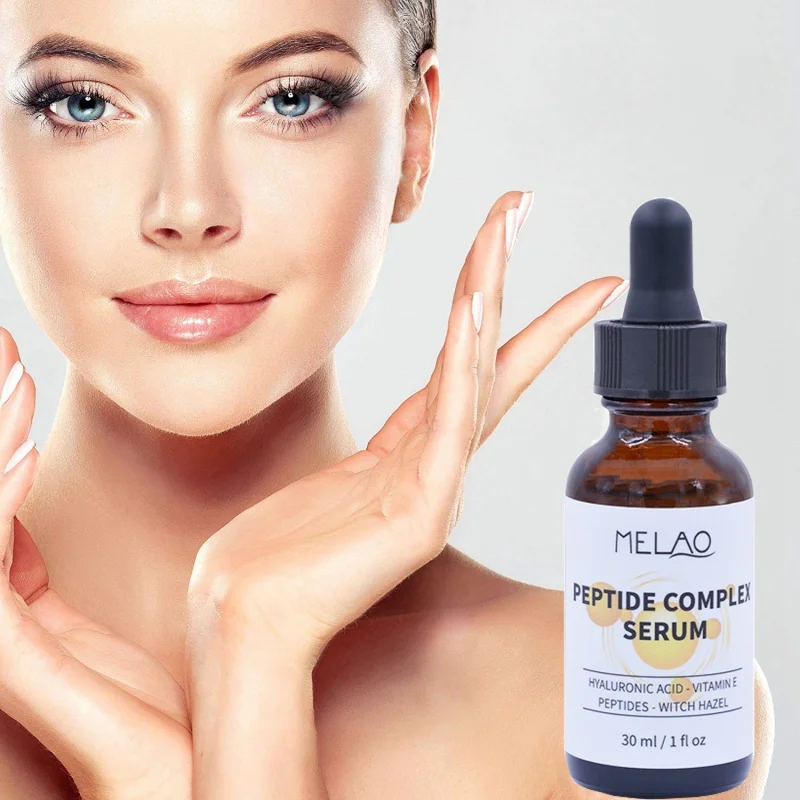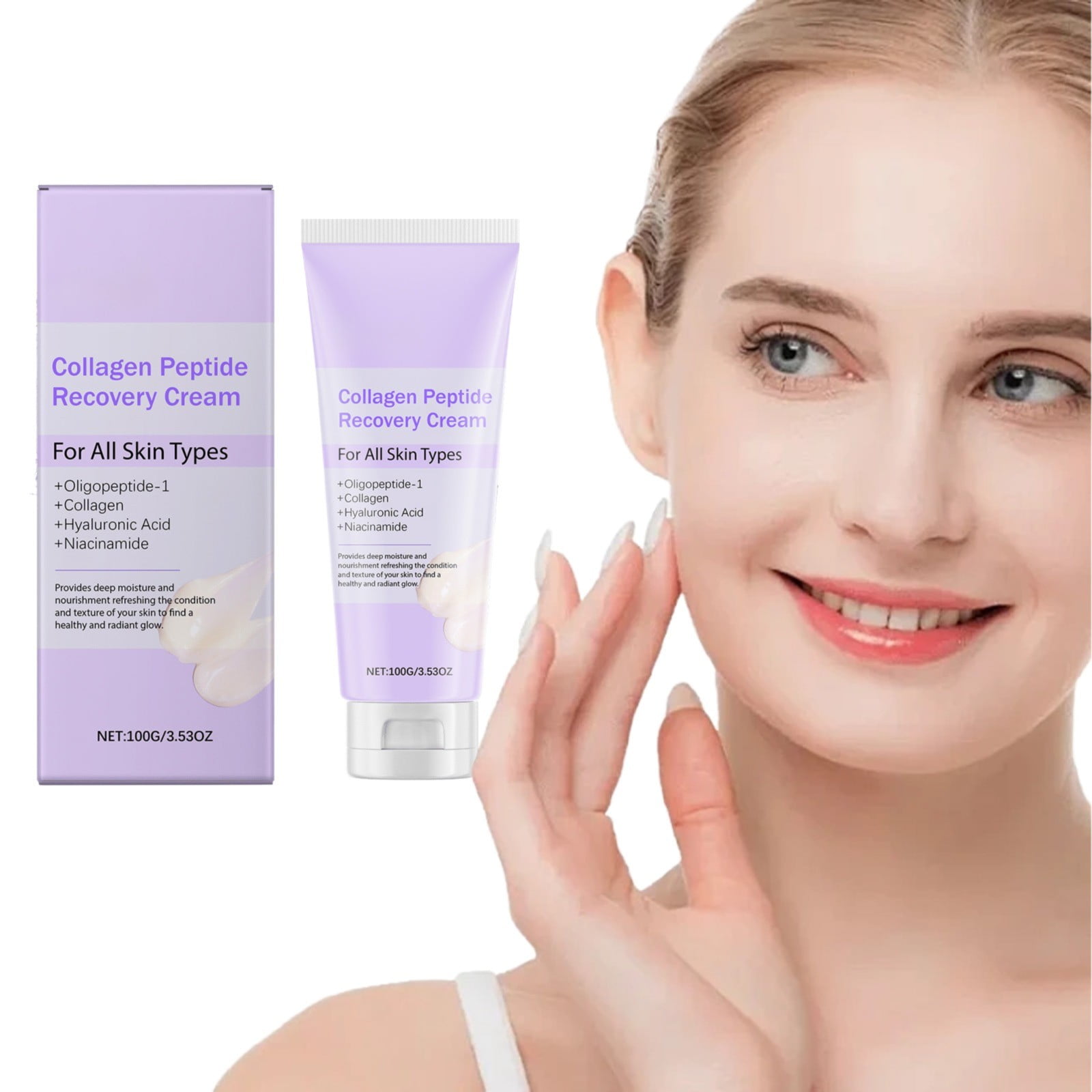Physical Address
304 North Cardinal St.
Dorchester Center, MA 02124
Physical Address
304 North Cardinal St.
Dorchester Center, MA 02124

Peptides are short chains of amino acids, which are the building blocks of proteins. These chains can penetrate the top layer of our skin and send signals to our cells to let them know how to function. For instance, peptides can tell our skin to produce more collagen, which is essential for youthful, supple skin. Think of peptides as messengers, instructing your skin cells to behave in a beneficial way, such as speeding up skin repair or increasing hydration.
Our body naturally produces many types of peptides, which are active in skin health and contribute to the look and feel of our skin. However, as we age, our production of peptides decreases, which leads to common signs of aging like wrinkles and loss of firmness. This is where synthetic peptides used in skin care come into play. These lab-created peptides are designed to mimic the same rejuvenating effects as the peptides naturally occurring in our skin.
When peptides are applied topically as part of a skin care regimen, they are absorbed into the skin, where they go to work promoting skin repair and renewal. They are often found in products such as serums, creams, and masks and can have various effects on the skin, depending on their type and formulation. The inclusion of peptides in skin care has become popular due to their ability to communicate with skin cells and produce noticeable results with regular use.
When discussing peptides in skin care, it’s important to understand that not all peptides are the same. The term “peptides” covers a variety of molecules, each with unique benefits for the skin. Here’s a look at some of the different types commonly found in skin care products:
In skin care formulations, these types of peptides can work alone or complement each other for enhanced results. Including a variety of peptides in your skin care routine can lead to improved skin texture and resilience. As you select products, look for those that mention these specific types of peptides in their ingredient list to address your particular skin concerns. Regular use of peptide-infused products may result in a noticeable improvement in the skin’s overall appearance and health.

Peptides have gained a stellar reputation in skin care for multiple reasons. First and foremost, they are known for boosting collagen production. More collagen can lead to fewer wrinkles and a more youthful complexion. It’s as if your skin regains its bounce and resilience with these powerful ingredients.
Peptides also play a crucial role in skin hydration. They help skin retain moisture, leaving it plump and smooth. This means hydrated skin throughout the day and a fresh, dewy look. If your skin often feels dry or parched, peptides can be a game-changer.
Another major benefit is the reduction of inflammation. Peptides have calming properties that soothe irritated skin. This leads to less redness and a more even skin tone. It’s good news for anyone with sensitive or reactive skin.
Let’s not forget about skin repair. Peptides can help heal damaged skin, which is essential after exposure to the sun or pollution. They encourage your skin to regenerate, helping to repair environmental damage. You’ll notice clearer, healthier skin over time.
Lastly, peptides are incredibly versatile. They work well for almost every skin type and concern. Whether you’re dealing with aging skin, acne scars, or simply want a boost in skin health, peptides can offer significant improvements. Use them regularly, and you’re likely to see your skin transform.
Incorporating peptides into your skin care routine is straightforward. Here are some tips to ensure you get the most out of these powerful ingredients:
Regular application of peptide-infused products can lead to visible improvements in skin texture and tone. Remember, skin care is a long-term commitment, and results will vary from person to person. For best results, maintain a routine and be patient as the peptides work to rejuvenate your skin.
Choosing the ideal peptide product depends on your unique skin type and concerns. Here’s a guide to help you match peptide skin care to your needs:
Always check the ingredient list for peptides in the first few items. A higher concentration means more effective results. Remember, a patch test is important to avoid reactions. Test the product on a small skin area before going all in. With regular use, you can see the transformative effects of peptides on your skin.

The fight against aging skin centers around maintaining its elasticity, firmness, and smooth appearance. Peptides play a significant role in such anti-aging treatments. Here’s why peptides have become a crucial element in the battle against the ticking clock:
Incorporating peptide-based products into your skincare routine, particularly those targeting aging concerns, could greatly benefit the appearance and health of your skin over time. By choosing the right type of peptide-infused product for your needs, you enable your skin to fight back against the effects of aging. Remember, consistency is key for the best results, and integrating various types of peptides can yield a more comprehensive approach to skin rejuvenation.
Despite peptides’ growing popularity in skin care, some myths and misconceptions persist. Let’s debunk a few common ones:
Understanding these truths can help you make better choices in your skin care. Look for reputable sources and studies to guide your decisions about peptides.

Peptides have made a strong impact in the skin care industry. Their role in promoting collagen and improving skin health is recognized by dermatologists and skin care enthusiasts alike. But what does the future hold for these powerful molecules in dermatology and skin care?
In the coming years, we can expect peptides to be tailored more precisely. Peptides may be custom-made to meet individual skin concerns. Imagine peptides designed just for your skin’s needs. This could lead to personalized skin care on another level.
New peptide discoveries are also on the horizon. Researchers are always seeking out innovative peptides with better stability and potency. We might see new types that can even target skin concerns more effectively. The goal is to deliver results that are both rapid and lasting.
Advances in technology will improve how peptides are delivered to the skin. Scientists are working on delivery systems that ensure peptides reach deeper skin layers. This could make peptide-based treatments even more effective.
The marriage of peptides with other cutting-edge ingredients is another trend to watch. Think about combining peptides with stem cells or growth factors. This could create powerful synergies for skin regeneration and repair.
Lastly, we can look forward to more clinical evidence supporting peptide efficacy. More studies will likely show how peptides impact skin on a cellular level. This will build trust and enable better product development.
As we move forward, peptides will stay at the forefront of anti-aging and restorative skin care. They will continue to be a game changer, evolving with scientific advancements. Peptides in skin care are not just a trend – they are the future.